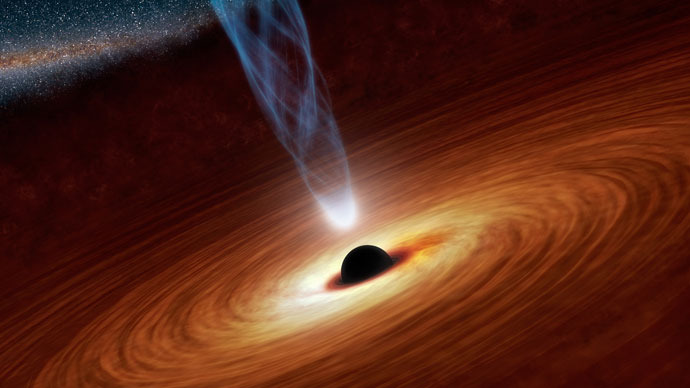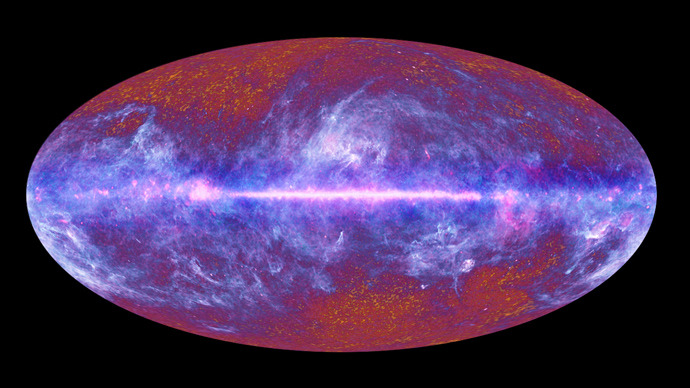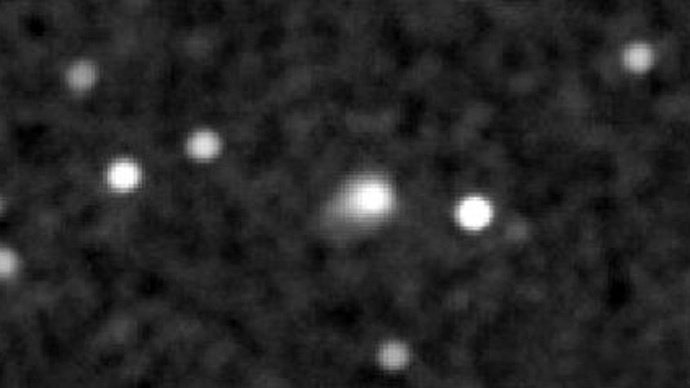Astronomers have caught a rare event, a black hole biting a chunk from an object – either a small star or a big planet – that strayed too close.
The feeding happened in galaxy NGC 4845, 47 million light-years away, and was witnessed by ESA’s Integral space observatory and other star-watching stations.
A sudden bright X-ray flare coming from its center in January 2011 and subsiding over the following year was deciphered as the massive black star located there feasting on its prey.
“The observation was completely unexpected, from a galaxy that has been quiet for at least 20–30 years,” says Marek Nikolajuk of the University of Bialystok, Poland, lead author of the paper in Astronomy & Astrophysics.
Usually black holes sit quietly, detectable only through bending of light passing by and their titanic gravitational pull. But occasionally something big gets too close and is consumed in an X-ray-emitting spectacular collapse
The black hole’s snack was an object of between 14 and 30 time the mass of Jupiter. It makes it either a large gas giant or a brown dwarf – a star big enough to fuse deuterium, but not regular hydrogen, and thus do not ignite like other stars.
The galactic matter-muncher swallowed some 10 per cent of the object's total mass after tearing it down. The remainder stayed in orbit. It also took two to three months between destruction of the object and the hole eating parts of it up.
NGC 4845 central black hole is estimated to have a mass of around 300,000 times that of the sun.



